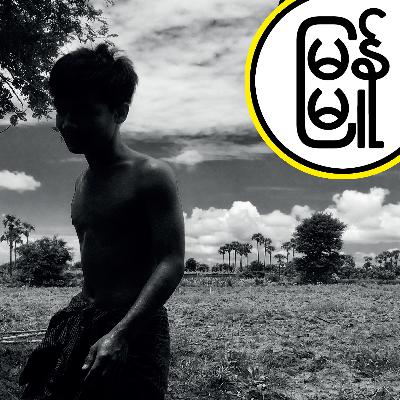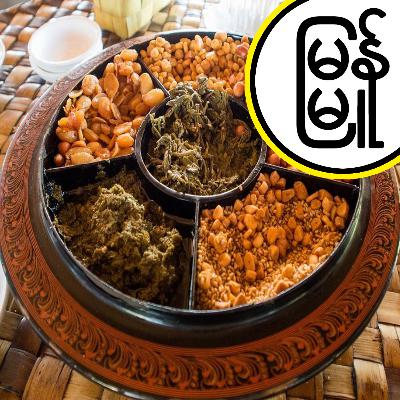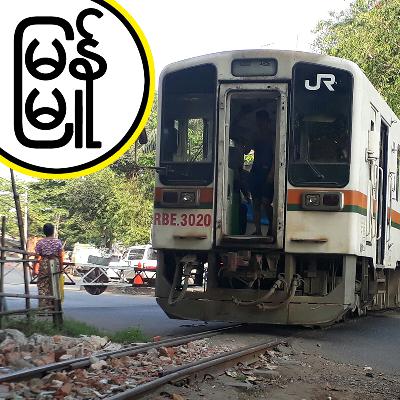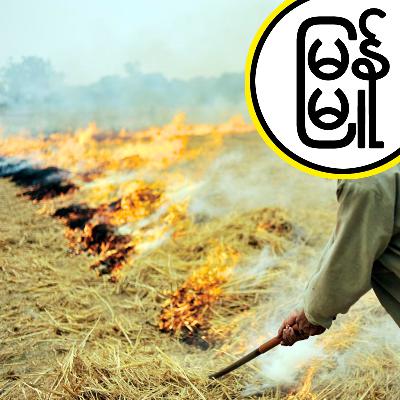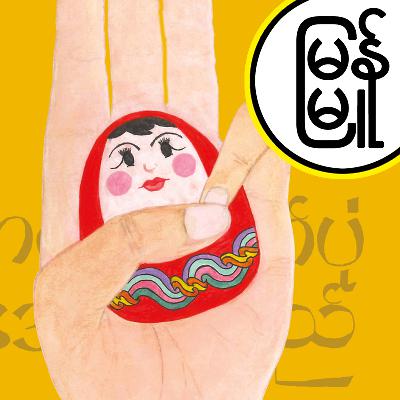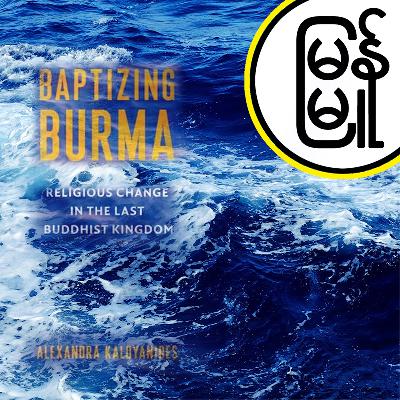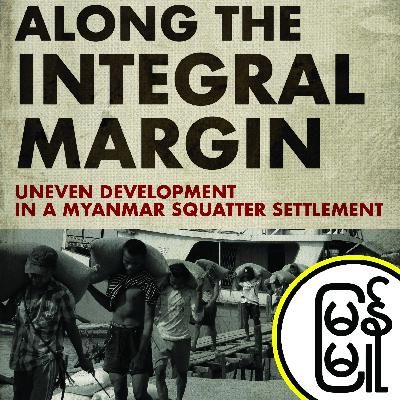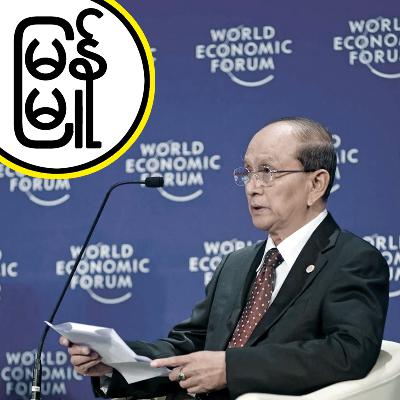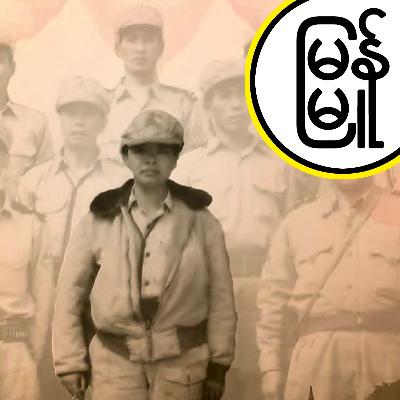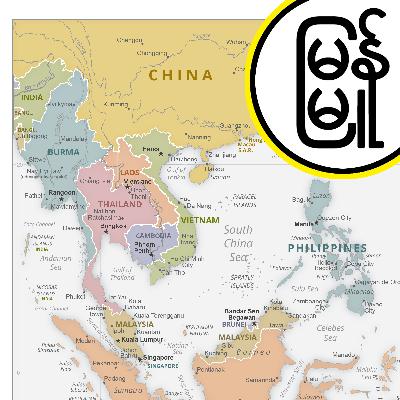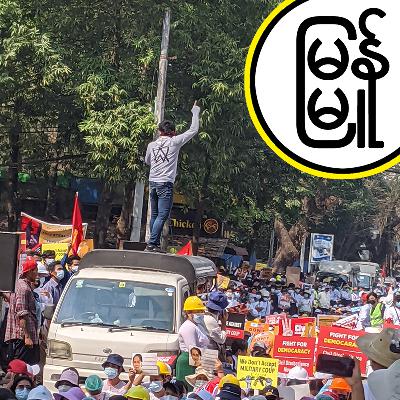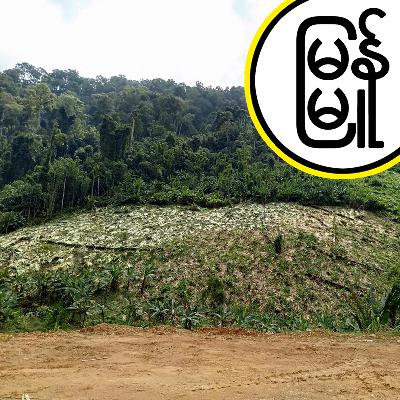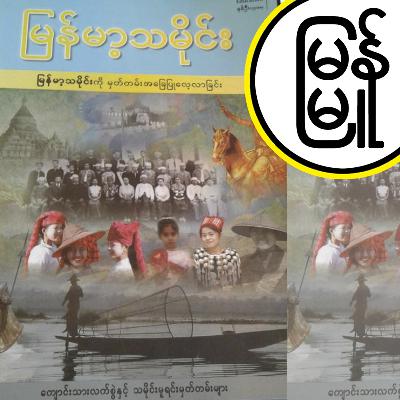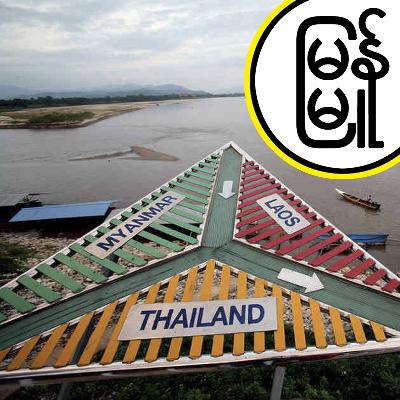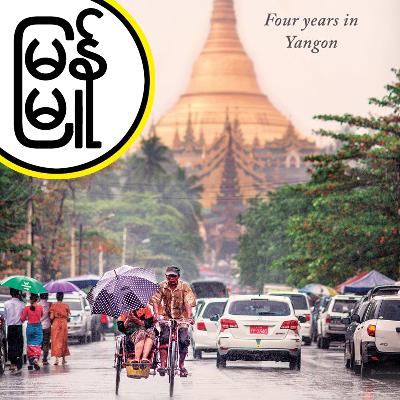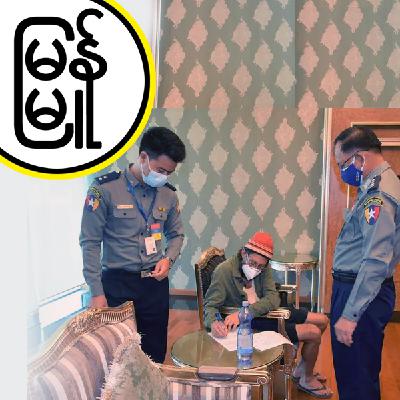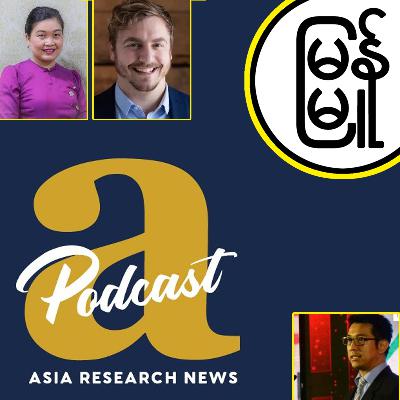Discover Myanmar Musings
Myanmar Musings

Myanmar Musings
Author: Myanmar Musings
Subscribed: 28Played: 107Subscribe
Share
© All rights reserved
Description
Myanmar Musings is the world's leading podcast with researchers and thinkers on issues relating to the Republic of the Union of Myanmar.
Disclaimer: The views and opinions expressed in this show are those of the interviewees/guests and do not necessarily accord with those of the host or the Myanmar Research Centre.
Disclaimer: The views and opinions expressed in this show are those of the interviewees/guests and do not necessarily accord with those of the host or the Myanmar Research Centre.
104 Episodes
Reverse
We speak to Dr. Stéphen Huard, researcher at the French Institute of Research for Development, about his recently published book in the Asian Anthropologies Berghahn Books series, Calibrated Engagement: Chronicles of Local Politics in the Heartland of Myanmar. This is a detailed and historically informed ethnography in Gawgyi, a small village near Monywa, and will be an enjoyable read for anyone interested in Bama culture and the Dry Zone. It's also currently available via open access here: https://www.berghahnbooks.com/title/HuardCalibrated
In this episode we speak to Dr. Michael Dunford, recent graduate of the Australian National University, about his unique anthropology PhD thesis on the Ta'ang people and the tea they live with. Mike did his fieldwork in Northern Shan State and Northern Thailand, and is primed to launch off to a new job in Singapore. I'm sure you've heard of tea—but what about the Ta'ang? Listen in, to find out more!
In this episode we speak to Clare Hammond, author of the new book published by Allen Lane: On the Shadow Tracks: A Journey Through Occupied Myanmar. Clare travelled by train around most of Myanmar before the 2021 military coup, from the southern coast to the northern mountains, and tells stories of colonial legacies, forced labour, villages torn apart by railway construction, and forgotten dreams of railways that could have changed the nation. If you love train travel and train books, this is an absolute winner! Clare will be speaking about her book in Thailand at the FCCT in Bangkok on July 31 and at Greenhouse in Chiang Mai on August 1. Don't miss out on seeing the author in person. FCCT: https://www.facebook.com/events/437914689161000
Peasant insurgencies are not only moments of conflict and crisis, but also of politics and performance: they are sites of social reproduction, where identities are made and remade. Dr. Jonathan Saha, Professor of South Asian History at the Durham University, discusses two events of the "Hsaya San Rebellion" in relation to racial capitalism and communal geographies. You can read his articles here: https://doi.org/10.1080/00856401.2024.2303213 and https://doi.org/10.1093/hwj/dbac023.
What's the difference between a right and an opportunity in Burma, and how do people resist or refuse the blunt biopolitics employed by its military rulers? In this episode, Elliott Prasse-Freeman, Assistant Professer of Sociology and Anthropology at the National University of Singapore, discusses his new book Rights Refused: Grassroots Activism and State Violence in Myanmar, published by Stanford University Press, which investigates activists' lives in the years preceding the 2021 military coup, and after.
Christianity is a hugely important minority religion in Myanmar and many Christians there follow the Baptist denomination. In a new book, Dr. Alex Kaloyanides, Associate Professor in Religious Studies at the University of North Carolina at Charlotte, looks at the Baptist mission to Burma through a number of holy objects, from 1813 until 2013. In this episode we discuss the book Baptizing Burma, Alex's approach to writing and her experience following along with visiting baptists on the 200th anniversary of the founding of the American Baptist mission to Burma.
Myanmar rulers and foreign experts often describe the country's economic reforms in the period following 2010 in glowing terms. In the book, Along the Integral Margin: Uneven Development in a Myanmar Squatter Settlement, author Stephen Campbell, Assistant Professor in the School of Social Sciences at Nanyang Technological University, Singapore, takes readers into the lives of the labourers behind the much-lauded, yet terminally tragic, "transition", of the time leading to 2021. He discusses why Myanmar elites were beholden to modernisation theory, the nature of squatting, internal migration, debt and "informal" work at the edge of Yangon, based on fieldwork before the 2021 coup.
What is the Civil Disobedience Movement (CDM) and how does it sustain itself, after more than two years of existence as a revolutionary strategy? What are the expectations and challenges felt by CDM participants, who refuse to work for military-ruled institutions in Myanmar? Samuel Hmung, PhD Student at the Coral Bell School of Asia Pacific Affairs, at the Australian National University, discusses his ongoing doctoral work, and his separate research project into the CDM.
Dr. Jared Bissinger, an independent development economist, talks off the back of his participation at the 2023 ANU Myanmar Update about the state of the Myanmar economy in 2023. Although some economic indicators have settled somewhat from the post-coup chaos, nearly all sectors appear to be in economic decline, and the ruling State Administration Council is rewinding or crippling most reforms made during 2011-2021 in order to further its rule at the expense of the average person, and the strength of the economy as a whole.
Gabrielle Palluch, author of The Opium Queen: The Untold Story of the Rebel Who Ruled the Golden Triangle, published by Rowman & Littlefield, joins the show to discuss the remarkable life of Olive Yang. Born in the Kokang region in the 1920s, Uncle Olive was an enigmatic and influential figure in the history of her ancestral region: brother and sister to royalty, potential CIA collaborator, maybe drug smuggler, almost-definitely arms trader, cattle dealer and sponsor of celebrity film stars... She lived quite a life, and Gabrielle has dedicated over 200 pages to trying to sort out the fact from the fiction.
In this episode we speak with Hunter Marston, PhD Candidate at the Coral Bell School of Asia Pacific Affairs at the Australian National University and Adjunct Research Fellow at La Trobe Asia, about Myanmar's foreign policy and international relations in the context of the the overblown 'New Cold War' superpower environment, the Southeast Asia region as a whole, and in terms of the numerous actors inside Myanmar still vying for state power.
Why has the pro-democracy movement in Myanmar been so resilient, even in the face of a hostile regime? In this episode, Mai Van Tran, Postdoctoral Researcher at the Nordic Institute of Asian Studies and Department of Political Science, University of Copenhagen, discusses her research on urban Myanmar's protest movements and contentious politics. She unpacks how, in her words, “the long-term resilience of the urban pro-democracy movement (in Myanmar) is one of the most impressive, and puzzling, among all cases of collective activism under authoritarianism”.
What is the past and future of "ceasefire capitalism" for Myanmar's many vulnerable communities? Dr Kevin Woods, Fellow at the East-West Centre and Adjunct Assoiate Professor at the Department of Geography and Environment at the University of Hawai'i at Mānoa, discusses the connections between conflict, statebuilding, resource exploitation and more in this wide-ranging episode.
What is the best way to teach the histories of Burma? How can students learn in an open and accepting environment and how can teachers work to promote reconciliation in the classroom? In this episode, teacher and anthropologist of education Dr. Rosalie Metro discusses her textbook on Burmese history, co-authored with Aung Khine, pedagogy and political values in the classroom. Read her latest piece on Tea Circle here.
Cold War conflict had many permutations, by proxy or otherwise, in Southeast Asia. In one little-known 1960-61 incident, the armies of the Union of Burma and the People's Republic of China cooperated to dispel Kuomintang (KMT) troops that had settled in Shan State following the conclusion of the Chinese civil war. Dr Ngeow Chow-Bing of the University of Malaya joins us today to talk about this unusual military cooperation. In doing so, he throws light on what was to become known as the notorious 'Golden Triangle' area of narcotics armies from the 1970s on.
Jessica Mudditt, an Australian author and journalist, discusses her recent book Our Home in Myanmar: Four Years in Yangon, in which she recounts working at a range of journalism outfits in the country, including the infamous military-owned and influenced Global New Light of Myanmar.
Danny Fenster and Ben Dunant, two foreign journalists with Frontier Myanmar, reflect on leaving the country following the 2021 coup. Danny was arrested and spent 176 days in prison on bogus charges when he tried to fly out of Myanmar last year.
What is the state of the media in Myanmar after the failure of "transition" and the realities of military subjugation? Are the roles of "local", "exile" and "international" media outlets changing? What about citizen journalists and visions for a federal democratic future? In this episode media veteran Lisa Brooten, Associate Professor in the College of the Arts and Media at Southern Illinois University Carbondale, tackles the big picture questions on the media in Myanmar in 2022.
This syndicated episode from Asia Research News is a dive into how decentralisation could lead the way to democracy and peace in Myanmar. The podcast is a result of the Knowledge for Democracy Myanmar (K4DM) Initiative, jointly supported by Global Affairs Canada and the International Development Research Centre, the IDRC.
Myanmar Research Centre member Mike Dunford announces that on December 9 and 10, the MRC at the Australian National University will be holding an online workshop for early career researchers from Myanmar and for those whose research focuses on Myanmar. To apply, send a current CV and a 300 word (maximum) summary of your current research project(s) to myanmar.research@anu.edu.au with the subject "ECR workshop". For more info check https://www.facebook.com/ANUMRC/.
Comments
 United States
United States

